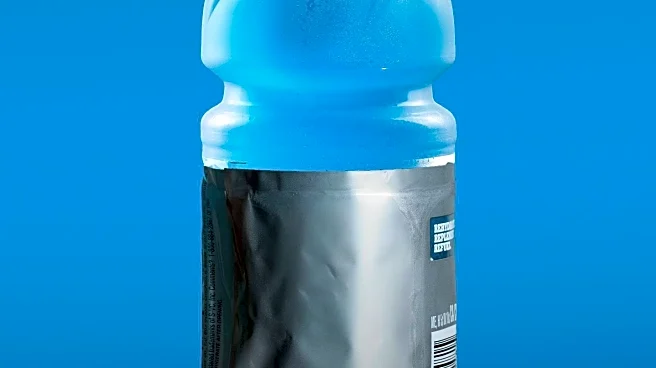What's Happening?
The market for superdrinks, which are beverages claiming to offer comprehensive nutritional benefits, is expanding rapidly. Products like AG1, Huel, and Ka’Chava are marketed as convenient alternatives to traditional meals, boasting numerous health benefits due
to their high nutrient content. However, experts are questioning the efficacy and value of these drinks. Despite their popularity, driven by celebrity endorsements and a cultural trend towards health optimization, these drinks are often expensive and may not deliver on their promises. Critics argue that the nutrient content in these drinks is not always bioavailable, and proprietary blends can obscure the actual amounts of ingredients, potentially leading to health risks.
Why It's Important?
The rise of superdrinks reflects a broader societal trend towards convenience and health optimization, but it also raises concerns about consumer protection and nutritional misinformation. As these products become more popular, there is a risk that consumers may rely on them instead of balanced diets, potentially leading to nutritional deficiencies. The high cost of these drinks also highlights issues of accessibility and equity in health and wellness. Furthermore, the lack of regulation in the supplement industry means that consumers may not be fully aware of what they are consuming, which could have health implications.
What's Next?
As the superdrink market continues to grow, there may be increased calls for regulatory oversight to ensure transparency and consumer safety. Companies might face pressure to provide clearer labeling and evidence of health claims. Additionally, there could be a shift towards more affordable and accessible health solutions as consumers become more informed about the limitations of superdrinks. The industry may also see innovation in product formulations to address current criticisms and meet consumer demand for effective and safe nutritional supplements.
Beyond the Headlines
The popularity of superdrinks is part of a larger cultural movement towards self-optimization and control over personal health, which has been amplified by the pandemic. This trend reflects deeper societal issues such as the desire for quick fixes in health and wellness, and the influence of celebrity culture on consumer behavior. The ethical implications of marketing these products, particularly to vulnerable populations, may also come under scrutiny as the conversation around health equity continues to evolve.














